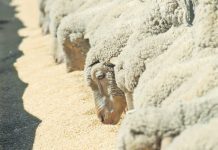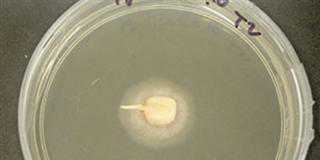US scientists have discovered that cows that experience difficulty in reproducing often have a genome containing fragments of the male Y chromosome, a breakthrough that could contribute to the management of reproductive failure in beef cattle operations. According to researchers from the US Agriculture Research Service, New Mexico State University and George Mason University in Virginia, the development could allow cattle producers to identify sub-fertile females before spending their resources on breeding.
For the research, reported in the Journal of Animal Science, cows were assigned to groups based on reproductive efficiency, and their DNA was pooled for genotyping. Researcher Tara McDaneld from the ARS Roman L. Hruska US Meat Animal Research Centre explains that the team used an single nucleotide polymorphism (SNP) marker assay with a specifically designed genetic probe that fluoresces when it attaches to designated markers.
The team was surprised when genetic probes designed for the male Y chromosome fluoresced in the sub-fertile females. The researchers found that 21% to 29% of females in the low reproductive category showed positive for the Y chromosome.
Further testing indicated the likelihood of the presence of some portion of male sex chromosome in females in various beef cattle herds across the US.
“Identifying genetic markers with predictive merit for reproductive success would facilitate early selection of females and avoid inefficiencies associated with sub-fertile cows,” the report states. “Beef producers will have a useful tool to identify replacement heifers that have no potential to breed.”













